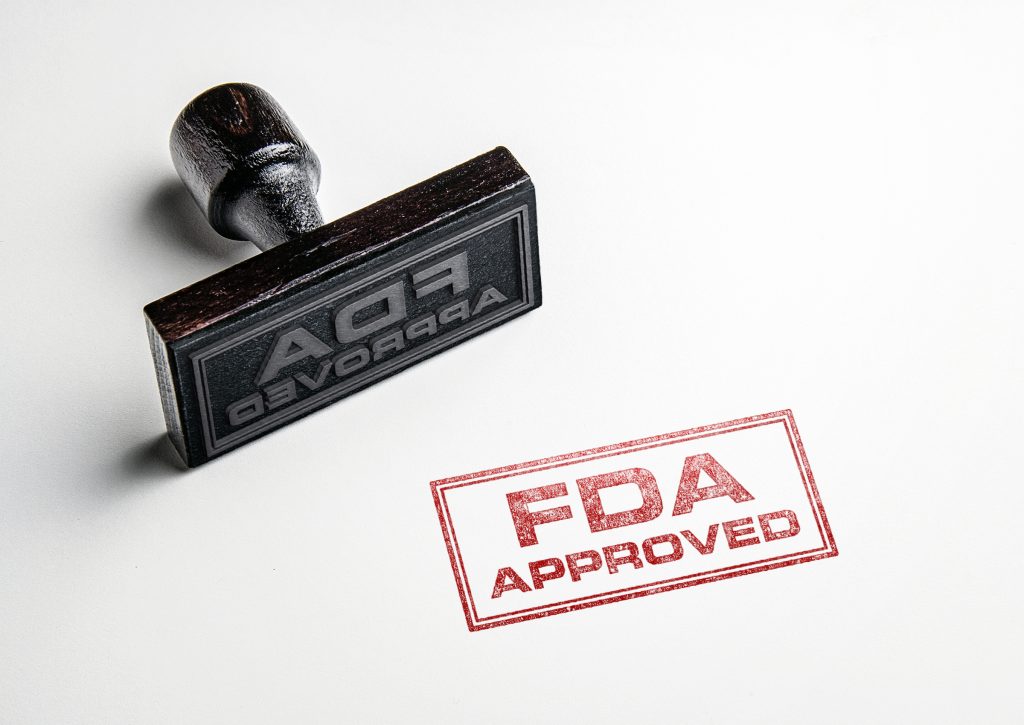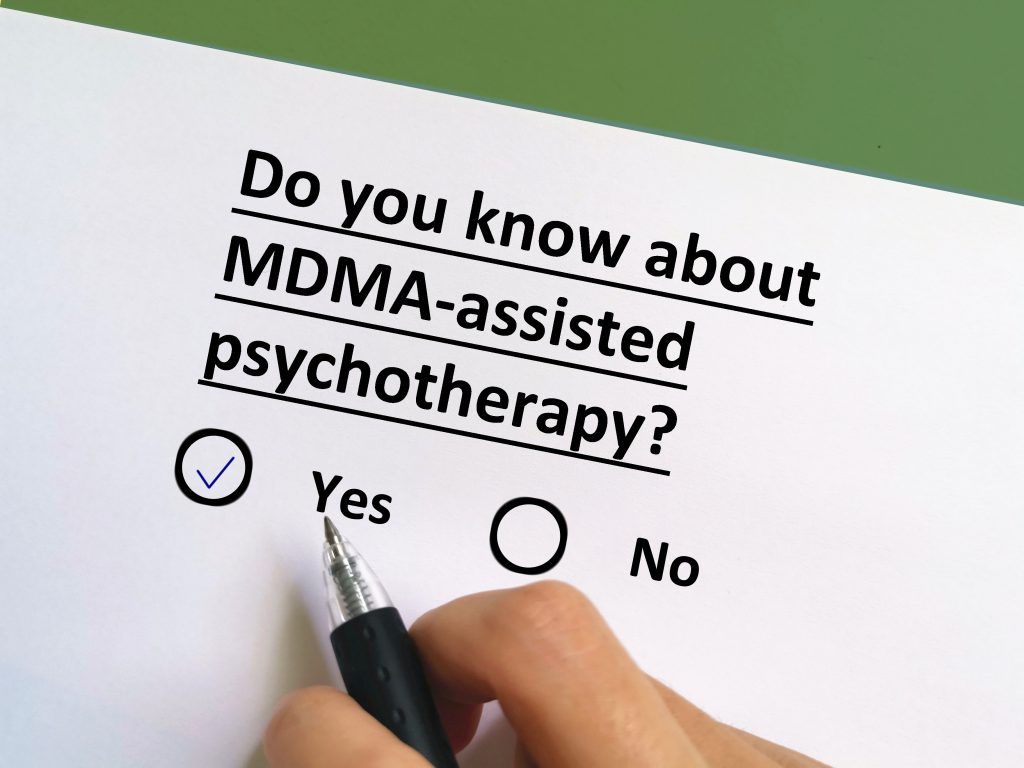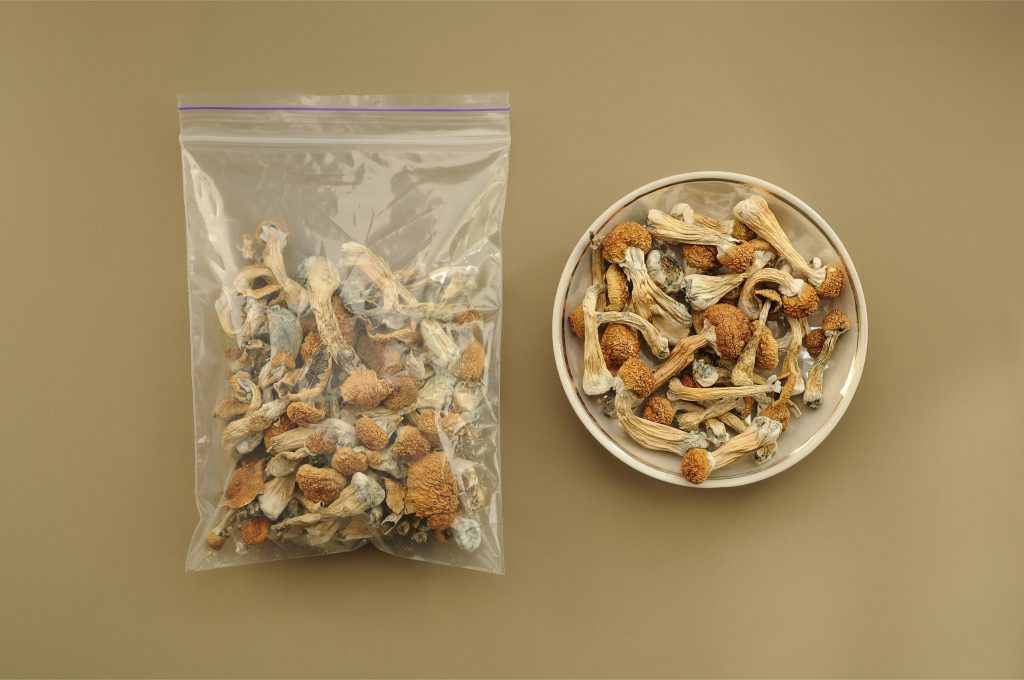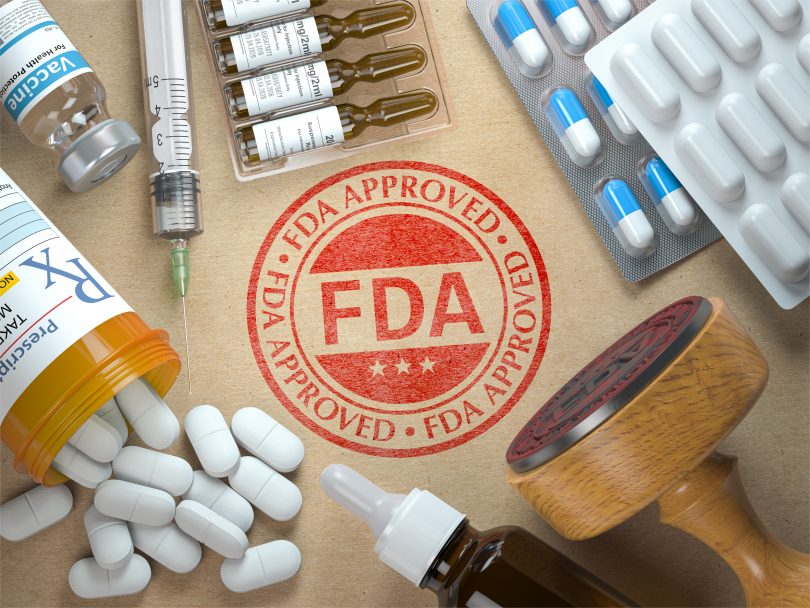The psychedelics boom is underway, that’s for sure, and its moving full steam ahead. Perhaps pushed on by the success of the cannabis industry, which has been lighting the way, psychedelics have much more quickly come into the spotlight and gained acceptance. While they are still mainly federally illegal, recent breakthrough therapy designations given by the FDA indicate that at least one government body is pushing for legal psychedelics.
The FDA might not have explicitly stated it, but its breakthrough therapy designations given to companies studying psilocybin and MDMA make a pretty big statement, and it seems the FDA wants legal psychedelic medications. We cover everything important in the growing field of psychedelics, so subscribe to The Cannadelics Newsletter for more stories like this, and to stay on top of the big news items coming out of the industry.
What is a breakthrough therapy?
The FDA – Food & Drug Administration, is the US federal agency that governs and regulates all medicines that can be marketed and sold in the US. The FDA sits under the Department of Health and Human Services, and is responsible for more than drugs, also regulating the food industry, tobacco products, dietary supplements, over-the-counter medications, biopharmaceuticals, blood transfusions, vaccines, medical devices, electromagnetic radiation emitting products, animal food, veterinary products, and cosmetics.
In order to get a medication approved, a compound must go through different rounds of testing through clinical trials. After it has passed this part, a company must submit a new drug application to the FDA, and then the FDA decides whether the medicine should be approved or not. The FDA is the sole body to do this, so if it does not approve, a medication cannot legally be sold.
When a drug is in the testing phase, the company that created it and is having it go through trials, can submit it to the FDA for a ‘breakthrough therapy’ designation. This goes for whether the drug is specifically illegal according to the Controlled Substances list, or not. The term ‘breakthrough therapy’ is defined this way by the FDA, as a:

“…drug that treats a serious or life-threatening condition and preliminary clinical evidence indicates that the drug may demonstrate substantial improvement on a clinically significant endpoint(s) over available therapies.”
What is this designation meant to do? According to the FDA, the “Breakthrough therapy designation is intended to expedite the development and review of drugs for serious or life-threatening conditions.” Let’s say a new drug is going through testing that could be used in place of chemotherapy, and which shows promise as a better option in preliminary testing for treating cancer. Then the company that made the drug can apply for a ‘breakthrough therapy’ designation to quicken its product to market, with the hope that this could in turn save lives.
So the point of it is essentially to speed things up. If the FDA gives this designation, it wants to get the drug through trials, and get it on pharmacy shelves. This, of course, becomes all the more interesting when the drugs in question are Schedule I drugs, deemed by the federal government to be dangerous, and with no medical value. Having said that, we all know the government can get it wrong, as it also has cannabis in Schedule I.
How does the breakthrough therapy designation apply to psychedelics?
The FDA has now officially given out three breakthrough therapy designations to three different companies studying either psilocybin or MDMA. All of which has occurred within the last few years. Which companies got it? And what are they studying?
One company to get such a designation is Compass Pathways which received the designation in 2018 for research into psilocybin for use with treatment resistant major depression. The following year, the company Usona Institute also applied for, and received, this designation for its research into psilocybin for treatment resistant depression.
It doesn’t stop at psilocybin though. In fact, before Compass or Usona got their designations, a 2017 breakthrough therapy title was given to the organization MAPS (Multidisciplinary Association for Psychedelic Studies) for its research into MDMA for PTSD. And in this case, the FDA went a step further than simply giving it the title to speed things along.

When it came time for MAPS’ phase III trials, they were designed with help by the FDA. The two organizations came up with a ‘Special Protocol Assessment’ to ensure that trial outcomes would be in line with regulation. So not only has the FDA basically said it’s cool with these drugs being studied for use as medications, but it actually helped one of the companies to make sure that should the study results be positive, that there will be no issue with them breaking regulation. Maybe it’s just me, but this seems to outwardly imply that the FDA wants the drugs approved.
Are all psychedelics illegal?
The recent moves by the FDA to give breakthrough therapy designations to psilocybin and MDMA, is just another part of a general trajectory when it comes to psychedelics. Back in 2019, the FDA very quietly (as in, under cover of night quietly) legalized a form of ketamine for use with treatment-resistant depression, called esketamine. This is odd when you consider just how much of a debate exists with legalizing cannabis, or when it comes to the legalization of pretty much any drug. Why was this done without discussion, or the public being aware at all?
The US government isn’t big on explaining its moves, but it seems the most probable reason for this change, was related to the quickly expanding gray market ketamine industry which relies on off-label prescribing. As ketamine is Schedule III, this is possible within general regulation, but makes for a market that is untaxed by the federal government, at least beyond standard taxing. Think about how many taxes are applied to the cannabis industry. It would be silly to think a psychedelics industry wouldn’t have the same, so ketamine proposes an issue to the US government.
If this burgeoning market was the reason for the esketamine legalization, the government failed on a couple levels. For one, it requires a regular antidepressant to be taken as well, and that defeats the purpose of using esketamine for treatment, while also making it more likely to have drug interactions. And second, it was only cleared for treatment resistant depression despite the large amount of evidence for it to be used for pain. This is odd considering the current opioid epidemic, and the ability for ketamine to not only deal with pain issues, but also possibly with the addictions that have grown around opioids. In fact, the US government has made no mention of using esketamine in this way at all, while 75,000+ people die a year from opioid overdoses.
Apart from esketamine, there’s another psychedelic that has been legal for quite some time: DXM – dextromethorphan. DXM is a dissociative psychedelic which is in the morphinan class, and not only has it been legal since 1958, but despite its known abuse, it’s been an over-the-counter drug the whole time. And one that can be accessed by anyone of any age. DXM can be found in tons of cold medicine products, and the US government has actually turned down initiatives to make it a prescription medication, though some states like California and Oregon have made their own regulation to stop the sale of DXM to minors.
State’s rights and psychedelics
Everything I just went through relates to federal guidelines, but there’s a caveat here, and it’s the same reason we have legal cannabis in 18 states: whatever isn’t covered explicitly by the constitution, falls under ‘states’ rights’, which are also ‘personal rights’. Because of this, psychedelics are not illegal everywhere.

Several locations throughout the US have instituted decriminalization measures, including: Denver, Colorado; Oakland, Santa Cruz, and Arcata in California; Ann Arbor, Washtenaw County, and Detroit, Michigan; Washington, DC; Somerville, Cambridge, Northampton, and Easthampton in Massachusetts; and Seattle, Washington.
Not only that, but as of the 2020 elections, the entire state of Oregon decriminalized psychedelics, while legalizing them for medical use. Three more states are looking to up the ante with full state recreational legalization policies: California, Michigan, and Washington. Though they propose different measures in their respective bills, in all cases legalizations would be made for the recreational use of at least some psychedelics, generally in the form of entheogenic plants (plants with psychedelic compounds).
Conclusion
Right now psychedelics are on the cusp of a major growth spurt, aided in part by breakthrough therapy designations from the FDA, the momentum of the cannabis industry, and the lightening mood of the population toward these two drug classes. I tend to think, when there’s this much of a rally, it can be expected that change is coming. So even if the three current states don’t get their bills through this time, something will pass soon enough. The one thing for sure is, psychedelics are coming.
Welcome readers! Thanks for joining us at CBDtesters.co, the preeminent internet location reporting on the most relevant and thought-provoking cannabis and psychedelics-related news of today. Check us out daily to stay aware of what’s going on in the fast-paced world of cannabis and psychedelics, and subscribe to The Cannadelics Newsletter, to ensure you’re always first to get the news.
Disclaimer: Hi, I’m a researcher and writer. I’m not a doctor, lawyer, or businessperson. All information in my articles is sourced and referenced, and all opinions stated are mine. I am not giving anyone advice, and though I am more than happy to discuss topics, should someone have a further question or concern, they should seek guidance from a relevant professional.









